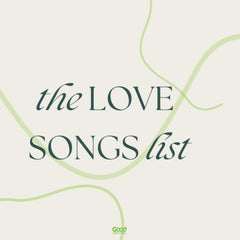Music is one thing that can connect humanity, regardless of our culture or where we come from. Famous poet Henry Wadsworth Longfellow wrote, “Music is the universal language of mankind.” A Harvard study found that music is so widespread that it has been found in over 86 human cultures. Music is associated with infant care, healing, dance, and love (and many other behaviors). But why exactly are so many human cultures drawn to music?
It turns out that music has a real, physiological effect on our brains when we listen to it and certain types of music produce different responses in the brain.
- Upbeat music with positive lyrics has been found to be linked to an energy boost and prime the brain for learning.
- Instrumental music and soothing genres of music can help the brain relax and concentrate on tasks, such as writing or studying.
There’s no question whether music has a tangible effect on our feeling state, but did you know that music can have an effect on sexual desire? This article will explore the link between music and pleasure, and how listening to music can even boost your libido.
The Powerful Connection Between Music & Pleasure
From a young age, we are primed to associate music with pleasure. The first time most of us encounter music is in our infancy, as mothers across nearly all cultures sing to their babies in order to soothe them. As this can be one of our first experiences, our brain is primed to associate music with pleasure.
Listening to music affects the production of many chemicals in the brain such as serotonin, dopamine, and oxytocin. Therefore, music is a reliable experience that we can count on to make us feel good. So much so that most people list music as one of the top ten things in their lives (among food, money, and art) that bring them pleasure.
Next time you're feeling down or need an energy boost, try listening to some upbeat or soothing music and notice how it may shift your state of being.
Music on the Brain
There are countless benefits of listening to music, and all of these benefits tie back to the powerful effect music has on the brain itself. Our brain interacts with music by receiving the vibrations that are transmitted through the eardrum from the vibrations emitting from a stereo system or headphones. The interaction of these sound waves with our eardrums is converted into an electrical signal that travels from the auditory nerve to the brain stem. Then, it is re-assembled in our brain and becomes what we perceive as music.
Depending on the type of music we are listening to, our brain will produce a different response – leading to different feeling states. While specific genres of music, like classical or jazz, have similar types of responses in the brain, not everyone will have the same emotive response. Scientists who have studied the effect of music on the brain state that it depends on your personal background. While some scientists have believed that classical music increases brain activity (commonly called the Mozart effect), listening to familiar music may produce a stronger effect. For example, those with dementia respond better to music they grew up with and parts of their brain will light up while listening to the familiar songs, triggering emotion-based memories.
5 Ways Music Influences Your Physical & Emotional Well Being
1. Reduces Pain
Music is linked to pain reduction because listening to it can trigger the production of opioids in the brain, which are the body’s natural pain relievers. In a 2014 study, the results found that listening to relaxing, pleasant, self-chosen music reduced pain and increased functional mobility significantly in patients with fibromyalgia. The results of several studies have suggested that the pain-reducing effects of music may also be related to the cognitive and emotional effects that arise from listening to music, such as distraction from pain, pleasantness, and pleasure, memory evoked emotions, and relaxation.
Music is definitely not a replacement for pain medication, but there are multiple ways it can help with pain reduction.
2. Relieves Stress
This is one effect that many of us can attest to. Have you ever had a stressful day and turned on your favorite music to help yourself decompress? It turns out there’s brain science that proves why listening to music can aid in relaxation and stress relief. Listening to music that you enjoy can lower cortisol levels (stress hormones) in the brain, lower heart rate, and release endorphins, which contribute to relaxation and stress relief.
These effects of soothing music have led music to be used as a form of therapy and aid in other stress-relieving practices like meditation. The results of a 2013 study demonstrated a link between music and stress relief in emergency room patients. “In the trial with 42 children ages 3 to 11, University of Alberta researchers found that patients who listened to relaxing music while getting an IV inserted reported significantly less pain, and some demonstrated significantly less distress, compared with patients who did not listen to music.”
3. Improves and Enhances Memories
Music can play a big role in both forming and recalling memories. Since music can elicit emotional responses in our brain, we easily form connections between music and memory. Many of us can relate to this – you might find that listening to a song from your childhood may surface memories or emotions you recall from that time.
According to neurologist Oliver Sacks, “Music evokes emotion... it brings back the feeling of life when nothing else can.” A 2014 study focused on studying the effects of music on patients with dementia found that both singing and listening improved the patient's mood, orientation, and memory recall.
4. Reduces the Effect of Seizures and Strokes
It’s no secret that music can be healing, but did you know it can positively reduce the effects of seizures and strokes? Researchers at Harvard have found that singing lyrics can be especially helpful to people who are recovering from a stroke or brain injury that has damaged the left-brain region responsible for speech. Because our singing ability originates in the undamaged right side of the brain, people can learn to speak their thoughts by singing them first and gradually dropping the melody. Research has also shown that music therapy can help stroke patients through mood regulation, improved concentration, and promoting changes in the brain to improve function.
The effect of music on people with epilepsy has also been studied, and results have shown that people with epilepsy have a different neural response to music than those without it. In a study conducted by Ohio State University Wexner Medical Center, one of the lead researchers, Christine Charyton, commented on the effect of music on patients with epilepsy, “Persons with epilepsy synchronize before a seizure. However, in our study, patients with epilepsy synchronized to the music without having a seizure…Persons with epilepsy may use the music to relax; stress causes seizures to occur…By listening to the music, many patients reported that they felt relaxed.” In conclusion, the healing effects of music are still being studied, but research has shown it can make a difference in the healing process of patients with strokes or epilepsy.
5. Boosts Your Mood
Listening to music you enjoy releases dopamine, which is a brain hormone that interacts with the reward center of our brain. Therefore, the production of dopamine that is triggered by music can lead to feelings of elevated mood and happiness. If you are ever feeling down and need a pick me up, try listening to upbeat music that you enjoy and see if it boosts your mood!
Can a Good Playlist Really Boost Your Libido?
We know that music can trigger certain feeling states, but can it increase sexual desire? In short, yes, music can have an effect on libido. Listening to music with romantic or sexual lyrics can influence romantic interest in a potential partner.
Women who are pre-exposed to songs with romantic lyrics are more likely to be open to romantic advances from their partner than women were exposed to neutral sounds. Research also shows that if you listen to sexually suggestive music before meeting possible partners, you are much more inclined to want to have sex.
But what is it about romantic or sexually focused music that may influence our libido? Well, music works with the brain's "opioid system," or the neurochemical pathway of the brain that releases pleasure-inducing chemicals like dopamine and serotonin. The same chemicals are produced when we feel happy, take drugs like heroin or MDMA, or have an orgasm, so it makes complete sense why music would make us more inclined to be intimate.
The next time you want to create a sexy atmosphere, try putting on sensual music and notice how it makes you feel. You might be surprised!
Looking for Ideas? Try Our Community-Curated Playlists
Are you interested in testing music’s ability to influence your desire for intimacy? You’re in luck. We have curated two playlists that are guaranteed to incite your desire for love or intimacy.
The Sex Playlist
Enjoy two hours and eight minutes of lovingly curated *intimate* music – all recommended by our followers on Instagram.
The Love Songs List
If you want to listen to one hour and twenty-one minutes of songs that make you want to slow dance in a candlelit room, kiss in the pouring rain, and throw rocks at your someone’s window, check out The Love Songs List.
Happy Listening!
















